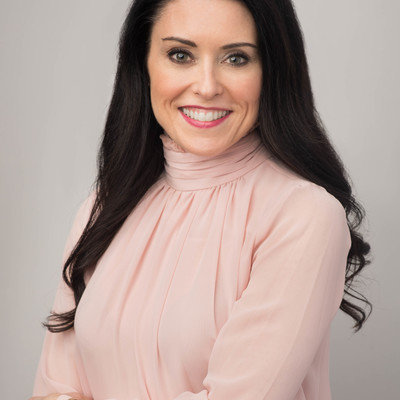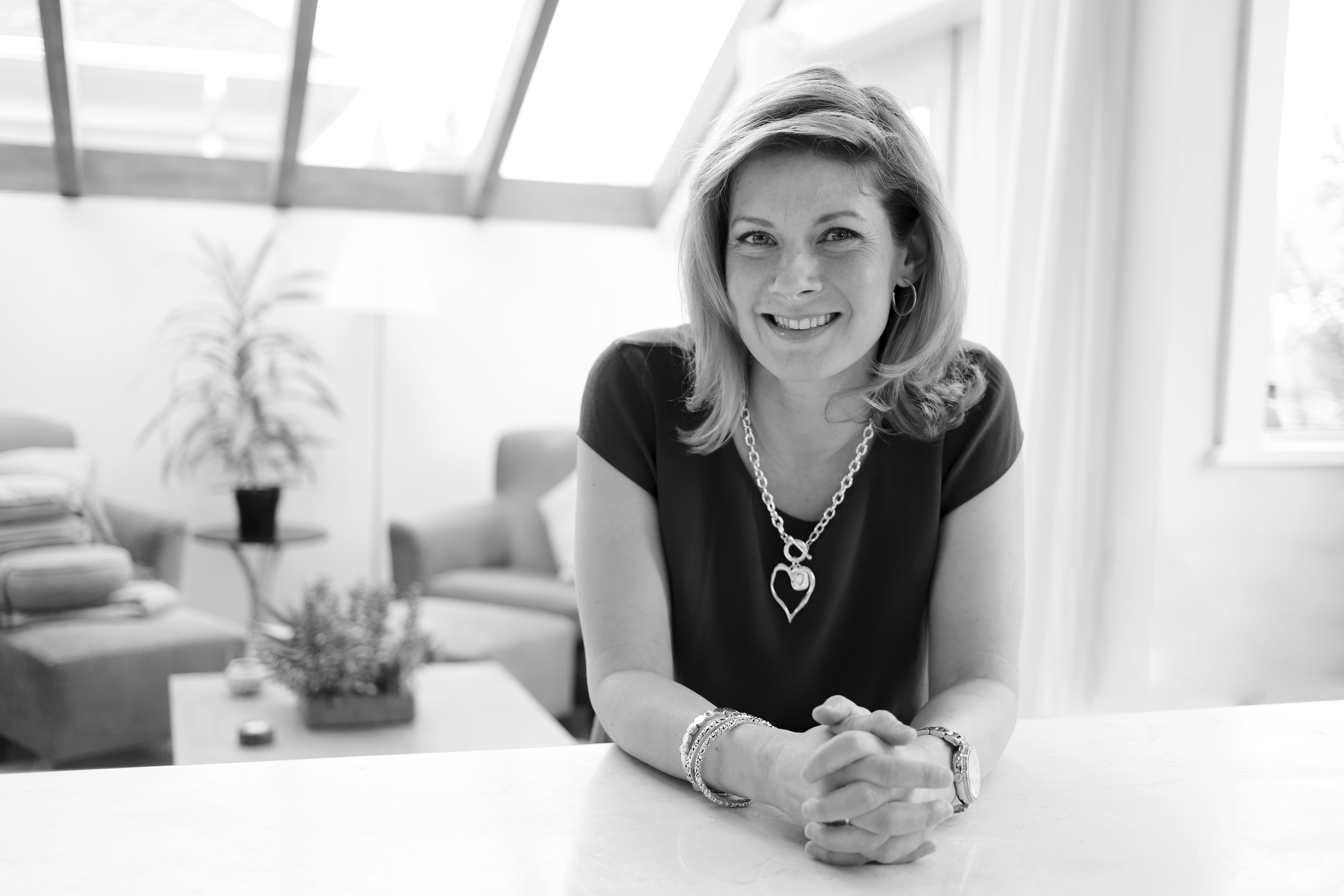Uncovering and listening to the quiet, confident, inner voice that lives deep in my stomach, not in my head.
As part of my interview series on the five things you need to know to become a great author, I had the pleasure of interviewing Claire Booth.
Claire Booth is the author of The Achiever Fever Cure: How I Learned How to Stop Striving Myself Crazy and the founder and CEO of Lux Insights, a market research agency serving clients such Amazon and Nintendo. She teaches at the University of British Columbia and is a competitive Masters swimmer.
Thank you so much for joining us! Can you share a story about what brought you to this particular career path?
I was five years into running a successful, profitable company and I was miserable. I was constantly thinking about the next goal which kept me worrying late into the nights, sometimes all night. I found myself thinking, when does the happiness start? One day, after a particularly feverish, sleepless night, I asked the question out loud to a group of fellow CEOs. That admission and the subsequent recognition that I had been so busy chasing insights into consumers I had overlooked the need to find my own, put me on a four-year “Mesearch” journey. After intensive self-reflection, working with teachers and coaches, reading, journalling, meditation, retreats and also a survey of hundreds of other achievers, I realized I had been suffering from what I now call Achiever Fever — a sickness that arises when we tie our happiness and self-worth to our accomplishments. The book is my story, augmented by survey data, of how I learned to wake up from my fever state, stop striving and start thriving.
Can you share the most interesting story that occurred to you in the course of your career?
In the first five years of starting my company, when I was suffering badly from achiever fever, I had to work hard to disguise my symptoms from my employees. I could not let them know, for example, that my inner critic was so strong that I experienced regular bouts of self-loathing. I thought I was doing a good job hiding until an employee wrote in my year-end review: “I know what kind of day it’s going to be as soon as Claire walks in the front door.” That sentence was a gut punch but it was my wake-up call. I am grateful beyond measure for that comment.
Another interesting story:
People often comment on the irony of writing a book as a way of curing achiever fever. While sharing my truth was my medicine, writing did also bring back the fever. I remember one particularly bad night in New York, when the fever got so bad I could not sleep. The next morning I was due to send out the survey which described the fever symptoms: the need to prove oneself, fear one won’t live up to their potential, constant worry, an inability to be present, distraction through food, alcohol etc. Identifying myself as a sufferer paralyzed me with fear — what if my employees quit? What if my clients left? After a night spent tossing and turning with anxiety, I had to laugh. Here I was, four years into all the healing work I had done on achiever fever, experiencing the sickness all over again. That night was a great reminder that the cure is an ongoing practice. I was also reminded of the power of owning one’s truth and making oneself vulnerable: as soon as I hit “send” on the survey, the fever vanished.
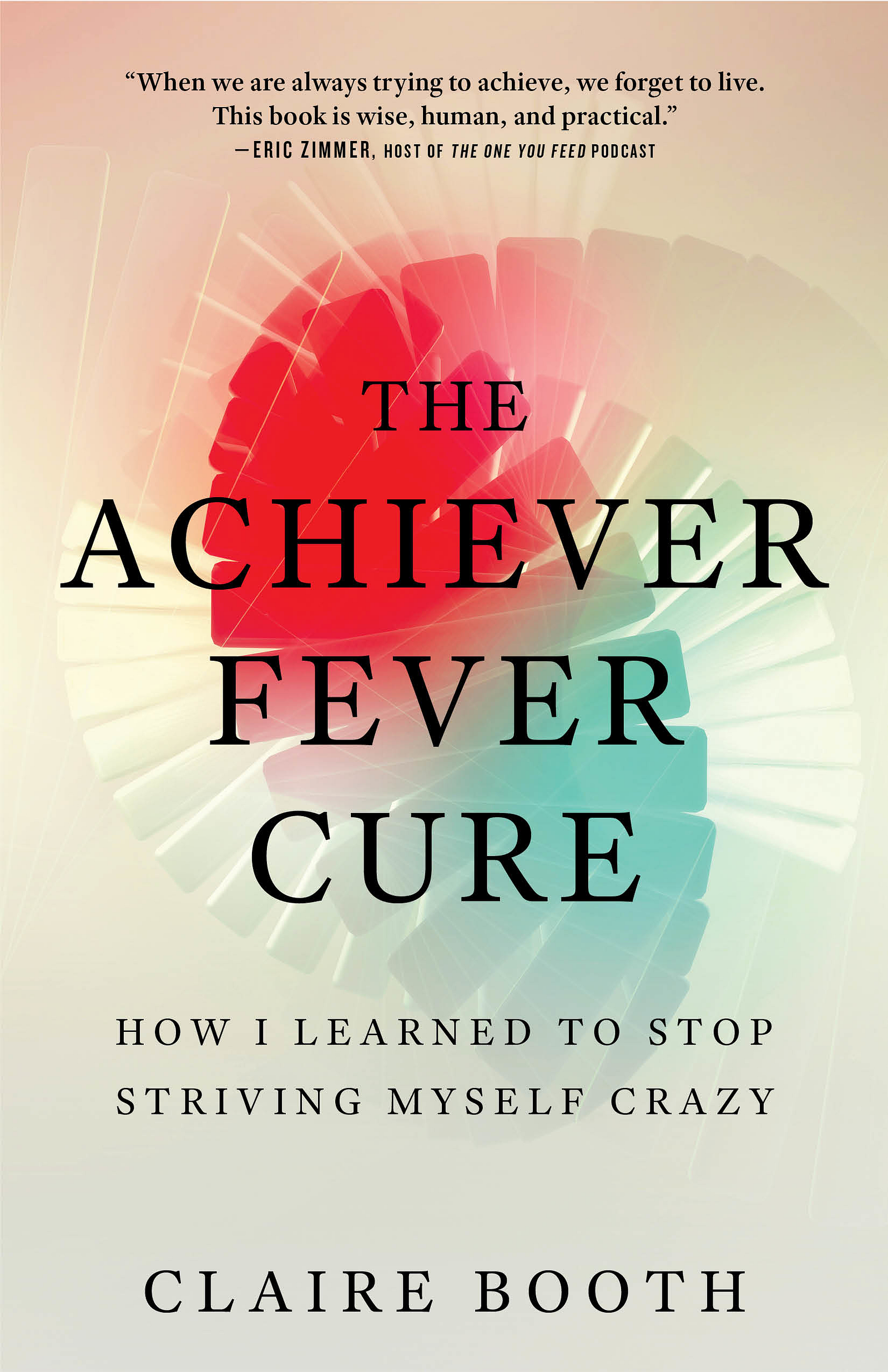
What are some of the most interesting or exciting projects you are working on now?
It wasn’t until my 40s that I learned the importance of resilience, trust, compassion, connection and gratitude. I feel strongly that these attributes can be taught and practiced at an early age and I recently became an ambassador for an organization called PowerPlaywhich brings the entrepreneurial mindset into the classroom. The program teaches kids how to start their own business and emphasizes self-confidence, curiosity, creativity, wonder and compassion (a portion of their profits must go to a cause they care about.) Whereas I strived for A’s in school through memorization, these kids are discovering their inner selves at nine years old. When I watched a documentary on the program, I cried from beginning to end, I was so moved by these kids learning what had taken me decades to understand.
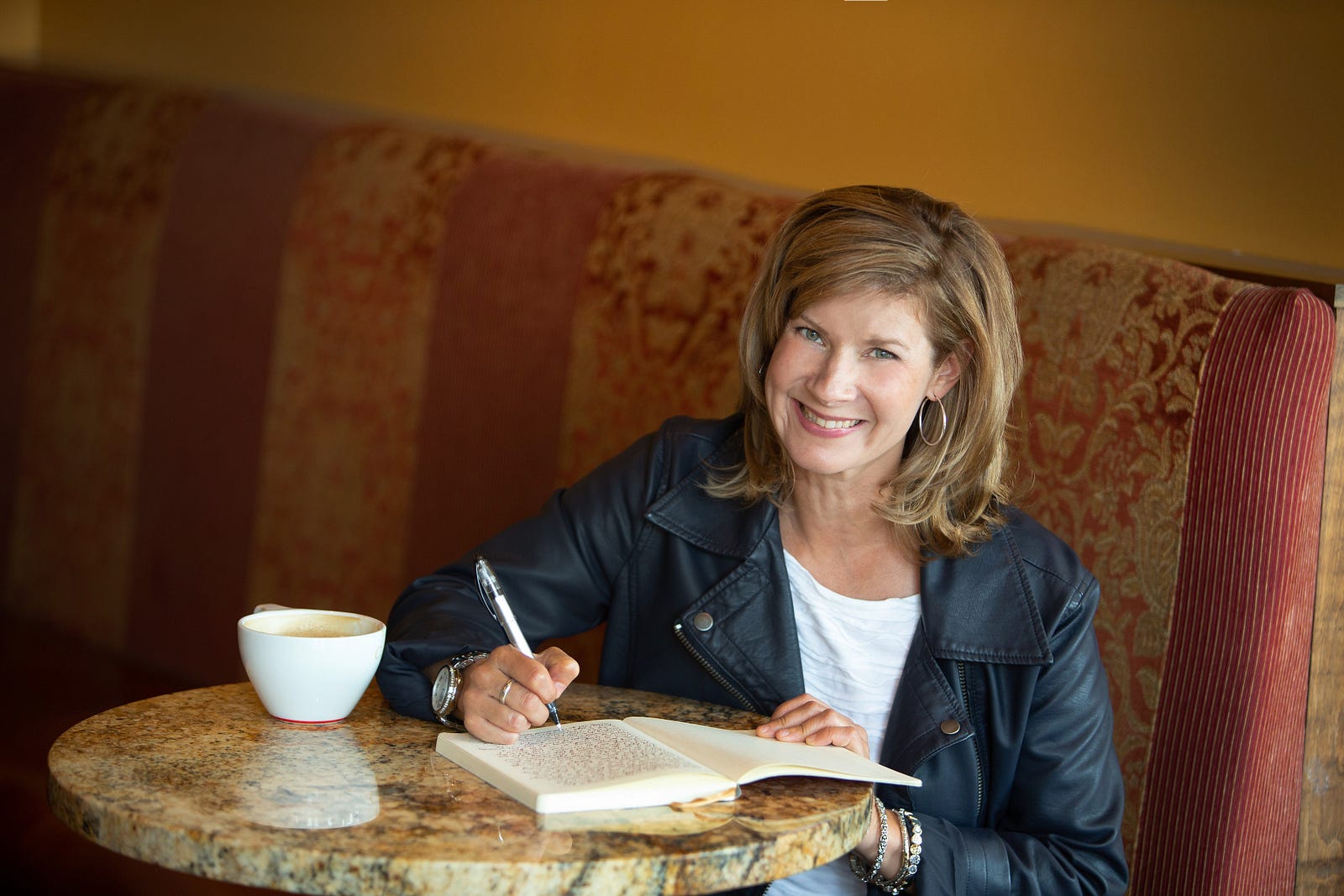
What is the one habit you believe contributed the most to you becoming a great writer?
Uncovering and listening to the quiet, confident, inner voice that lives deep in my stomach, not in my head. This is the voice that had been drowned out for decades by my inner critic and it was a ten-day silent meditation retreat that helped me to find it. When I let go of the shoulds, the worries, the what-ifs and the doubt, that voice is clear. Sometimes it comes out as I am writing. My fingers will fly across the keys and it will feel like I am channeling it. For example, in my first draft, I was writing about the importance of journaling and suddenly, these words came out on the page: “writing is how I connect most deeply to myself.” I had no idea I knew that. Reading it back, I had to push away from my desk I was so overcome. No achievement feels as good as this connection; it’s how I know I’ll keep writing.
What is the main empowering lesson you want your readers to take away after finishing your book?
When I turned 40, the following phrase took up residency in my brain: I’ve got to get out of my own way. I didn’t know what it meant, or what I was supposed to do about it, but it was the signpost I needed to get to know my inner critic. I had spent decades listening to it on autopilot and I assumed that voice was me. While it pushed me to succeed, it also kept me in a state of fear and self-loathing. My survey shows that most achievers have a very loud inner critic telling them they are not good enough, strong enough, smart enough or trying hard enough. The empowering lesson I want to share is that we can disrupt this voice. When we learn to question and quiet our inner critics, we flourish.
What was the biggest challenge you faced in your journey to becoming a bestselling author? How did you overcome it?
When my book came out a month ago, I was initially riveted by watching the reaction to it on social media. It was liberating to be so transparent about what had been my very private and painful inner life. A sense of urgency (a hallmark of achiever fever) soon took hold and I started checking my phone dozens of times a day. It was a couple of weeks before I realized I fallen into the trap of external validation. Here I was writing about being present and connected to our inner selves and I was spending hours glued to my phone. In a “universe always provides” way, I read Christina Crook’s book The Joy of Missing Out where she talks about digital detoxes and internet fasts. My practice has since become to check my phone/email no more than three times a day and to trust that the book will reach whoever it needs to reach.
Which literature do you draw inspiration from?
I gravitate to memoirs because I love reading about the inner lives of others — the more detail, the better. For example, this summer I finished the final book of Karl Ove Knausgard’s 3600-word opus, My Struggle. The Norwegian author painstakingly documents his life from boyhood to his 40s and his honesty, especially around shame, inspires me to continue sharpening my self-awareness and writing skills so I can connect even more deeply to myself, and others.
How do you think your writing makes an impact in the world?
By telling my story in a language achievers can relate to, and by giving my sickness a name, I can hold a mirror up and help those who may be suffering. I wrote The Achiever Fever Cure because this was the book I was looking for in my early 40s when I was so miserable. As a result of my inner work and my writing, I am a very different person than I was four years ago — much more open, more compassionate, more loving, and at the same time, my business continues to grow. My story shows achievers that there is another approach to life, one that centers on thriving, not striving. I want to tell people that change is not a process of fixing or addition, it rather about stripping off layers of doubt and fear. I want to help people pierce through the delusion that our achievements will make us happy and whole. I want to help others find the peace and joy that is already inside them, waiting to be discovered.
What advice would you give to someone considering becoming an author like you?
I now understand how to listen to what my gut, my inner self, my quiet voice says. I have to get very quiet in order to listen, which usually happens when I meditate, or am in a state of flow or am doing something slowly and mindfully. Once I hear it, I can’t unhear it. This was the case with my book. I knew I wanted to write it and no matter how much I tried to talk myself out of it (it’s too hard, no one will read it, I don’t have enough time) the pull to write wouldn’t go away. My advice to other people considering writing is: if you feel the pull to write, however faint it might be, acknowledge, revere and respect that impulse. For me, the more I try to resist it, the more pain, turmoil and disorder arises. When something wants out, the only one standing in our way is us.
What are your “5 things I wish someone told me when I first started”?
There is enormous power in vulnerability. Sharing your innermost fears with others will heighten your self-awareness and strengthen your connection with others. It may also be the fuel you need. For example, when my inner critic was telling me that I was neglecting my business in favor of writing and that I should take a break from my book, I shared this concern with one of my employees. She told me that if I took a break, I would be sending a message that not only was it ok to give up but also that I didn’t trust they could carry the business without me. That insight was the fuel I needed to finish the book.
Writing is fueled by discipline. I intuitively knew that writing would require scheduled sessions and for the most part, I stuck to them (Tuesdays and Thursday mornings plus one weekend afternoon for about a year.) What I didn’t give myself credit for is how disciplined I was in other aspects of my life (like my fitness) and had I trusted this commitment muscle I had already built, I could have saved myself an enormous amount of grief and worry fretting that I didn’t have what it took to get the book done.
Remind yourself to “get from”, rather than “get through”. As a striver, I used to always be in a hurry — a hurry to finish, a hurry to figure something out, a hurry to change. I now understand that more we try to force our evolution, the more elusive it becomes. For example, I needed to go through that sleepless, feverish night in New York to re-experience my achiever fever as it helped put me back in touch with the symptoms I had lived with for years. At the time, I wanted to get through it. Now I see that I was meant to get from it.
Your inner critic will tell you horrible things about yourself. It is lying to you. Our inner critic (or left-brain interpreter, as it is called in cognitive psychology) evolved to keep us safe by looking for threats and keeping us in a state of fear and high alert. It feeds on language, so if it hears negativity, it will spew negativity. Learn to flush this voice out and learn to question it so you can disrupt it. I used a self-inquiry process called The Workdozens of times as I wrote, allowing me to pulverize thoughts like: you’re a fraud, you’re not meant to write this book, this book will flop.
Surround yourself with motivating people. Someone once told me you are a product of the five people you surround yourself with. Writing is difficult enough, if there is someone in your life purposefully making the process even more challenging, don’t spend time with them. I had a woman tell me at one point, “don’t worry, no one will ever actually read the book.” Considering this woman was also an author, that comment stopped me cold for three days.
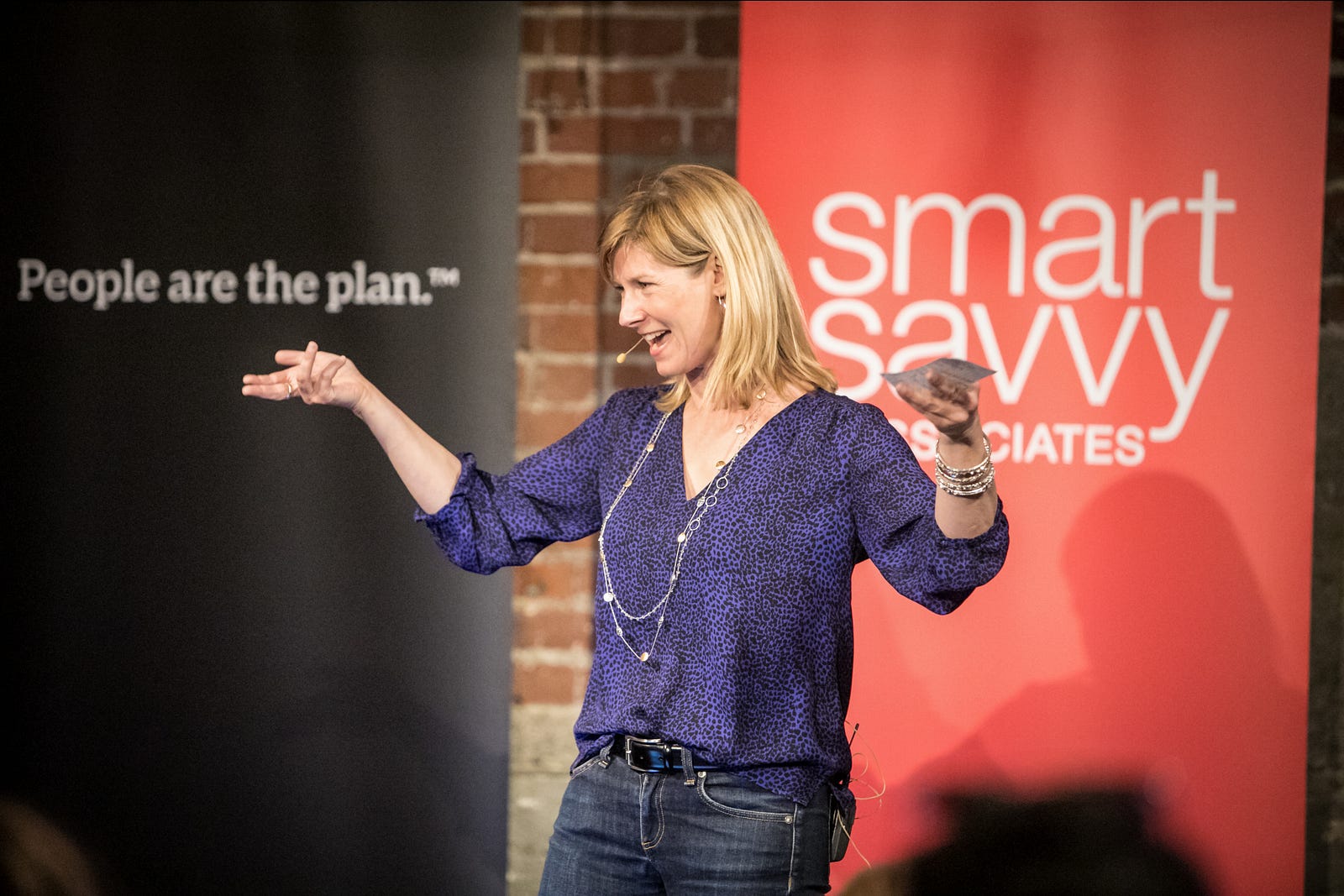
You are a person of great influence. If you could start a movement that would bring the most amount of good to the most amount of people, what would that be?
While so many of us spend hours in the gym exercising our physical selves, we don’t take the time to work on our inner selves. I didn’t realize I even had an inner self until I was in my 40s. Getting to know our inner selves, and deepening this connection, makes us more loving and compassionate people. It is in this state that we flourish. However, we need the space and time to do this.
Ten years ago, my partner and I took 16 months to travel the world and we came back energized and rejuvenated. I had glimmerings of my internal self on that trip, but wasn’t ready to meet it yet. Instead, I threw myself into starting my own business and lost myself to striving. Now I’m ready to do another trip to further deepen my practices. This time, I am calling the trip my GAP year (growth and awareness through practice) and intend to write about my experience. I love the idea of workplaces recognizing the importance of GAP years and coming up with structures that encourage employees to take them. As an employer, I can lead the charge on this. A GAP year is time well-invested on a personal, professional, societal and economic basis. These years will help people build resilience, an ability to adapt, courage and self-awareness, attributes that help employees thrive.
How can our readers follow you on social media?
Instagram: @Claireboothauthor
Twitter: @clairebooth_lux
LinkedIn: Claire Booth
Thank you so much for this. This was very inspiring!

